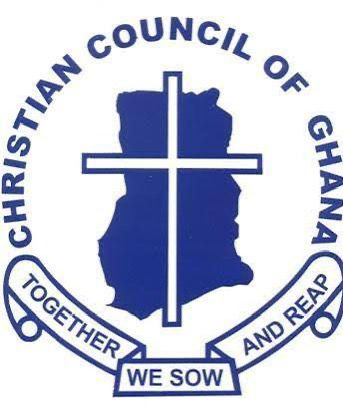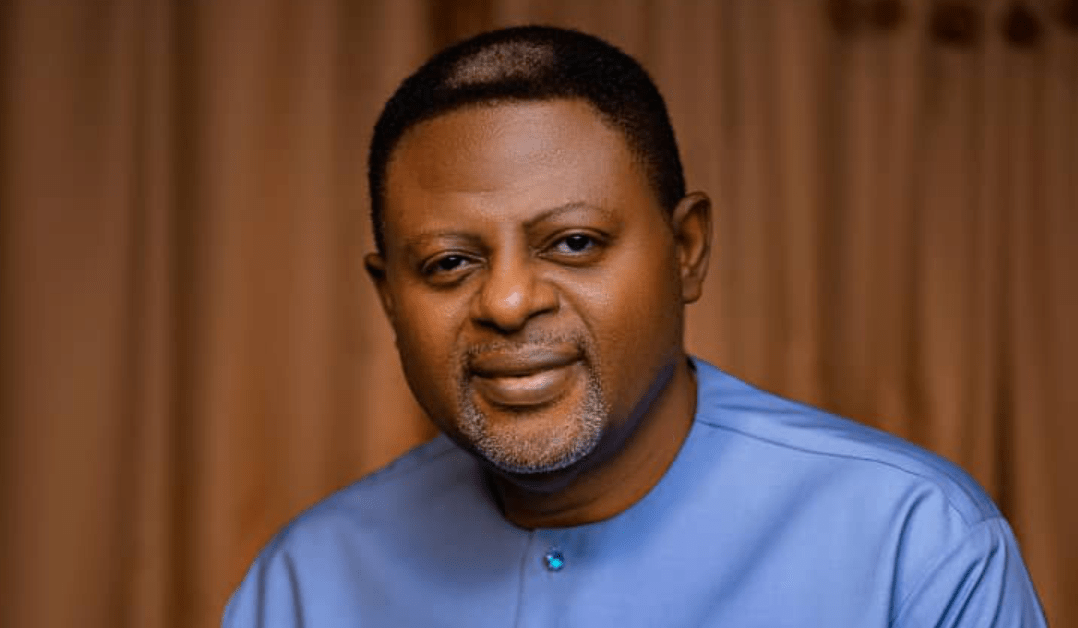Copyright rainbowradioonline

The Christian Council of Ghana (CCG), established in 1929, stands as the nation’s premier ecumenical body, uniting diverse Christian denominations to advance spiritual, social, and developmental objectives. As the CCG commemorates its 96th anniversary on October 30, 2025, under the theme “Reflections, Achievements, Setbacks & The Way Forward,” this write-up examines its historical trajectory, key accomplishments in democratization, human rights, and socio-economic justice, alongside persistent challenges such as financial constraints, secularism, and environmental degradation. Drawing on archival insights and contemporary analyses, the discussion highlights the CCG’s role in Ghanaian society and proposes strategic pathways for renewal as it approaches its centenary in 2029. Through a reflective lens, including the author’s perspective as Chairman of the Planning Committee, the discourse underscores the imperative for adaptive ecumenism, youth engagement, and greater interfaith collaboration to sustain the CCG’s existing relevance in a rapidly evolving context. Ultimately, it argues that faith-driven innovation can propel the CCG toward a transformative future, fostering national unity and ethical governance. Introduction The Christian Council of Ghana (CCG) represents a cornerstone of ecumenical Christianity in West Africa, embodying the collective voice of at least 30 denominations and churches since its founding on October 30, 1929. Initiated by five pioneering churches—the African Methodist Episcopal (AME) Zion Church, the English Church Mission (Anglican), the Ewe Presbyterian Church (now Evangelical Presbyterian Church), the Presbyterian Church of the Gold Coast (now Presbyterian Church of Ghana), and the Wesleyan Methodist Church (now Methodist Church Ghana)—the CCG emerged amid colonial rule as a platform for unified Christian advocacy. Its mission, as articulated in its foundational charter, emphasizes justice, unity, reconciliation, and the integrity of creation, aligning with broader global ecumenical movements such as those affiliated with the World Council of Churches. As Ghana transitioned from colonial dependence to independence in 1957 and navigated subsequent political upheavals, the CCG evolved into a moral arbiter, influencing national discourse on governance, human rights, and socio-economic development. The 96th Anniversary, to be observed on October 30, 2025, through a Breakfast Meeting which is taking place in the immediate aftermath of the inauguration of the Planning Committee (I happen to be the Chairman) for the maiden Ecumenical Convention to be held between November 14-16, 2025, serves as a pivotal moment for introspection as well as a strong launchpad into the future. The Breakfast Meeting will be Chaired by Rev. Dr. Joyce Aryee, a distinguished leader in faith and public service; Mr. Samuel Amo Tobbin will be the Guest Speaker – whose entrepreneurial and spiritual expertise promises innovative insights; Guest of Honour is Nana Oye Bampoe Addo, Deputy Chief of Staff, representing Chief of Staff Julius Debrah, highlighting the ever-essential synergy between Church and State. The write-up adopts the anniversary theme as its structural framework, exploring reflections on the CCG’s legacy, its achievements, setbacks, and strategic directions forward. By integrating historical analysis with forward-looking recommendations, it contributes to scholarly discourse on ecumenism in modern day Ghana in particular and Africa in general, emphasizing the CCG’s large potential to address contemporary challenges like environmental degradation and youth disengagement. Historical Reflections: From Colonial Origins to Modern Ecumenism The CCG’s genesis in 1929 reflects the broader African Christian awakening during the interwar period, where indigenous and missionary churches sought solidarity against colonial marginalization. Initially comprising five denominations, the Council expanded rapidly, incorporating diverse traditions such as Methodist, Anglican, Presbyterian – which now includes the Ghana Baptist Convention and Mennonite institutions. This ecumenical foundation facilitated collaborative responses to societal issues, from education reforms under colonial administration to post-independence nation-building. In the decades following Ghana’s independence, the CCG played a subtle yet significant role in stabilizing democratic transitions. During the turbulent eras of military rule in the 1970s and 1980s, it advocated for human rights and peace, often through discreet diplomacy. The 1990s marked a turning point, with the CCG actively supporting the return to multi-party democracy in 1992, establishing local councils of churches to monitor elections and promote civic education. These efforts underscore the CCG’s evolution from a spiritual fellowship to a socio-political actor, embodying the prophetic tradition of Christianity in engaging temporal powers. Reflecting on this history reveals patterns of resilience and adaptation. The CCG’s affiliation with global bodies like Global Ministries has amplified its impact, enabling international partnerships for development initiatives. As it nears its centenary, these reflections invite a critical appraisal of how historical legacies inform present strategies, ensuring the Council remains a dynamic force rather than a relic of the past. Achievements: A Legacy of Advocacy and Transformation The CCG’s accomplishments span spiritual, social, and developmental domains, cementing its status as Ghana’s ecumenical beacon. Foremost among these is its pivotal role in democratization. Post-1992, the CCG’s internal structures, including local councils, have facilitated and continue to facilitate voter education, election monitoring, and conflict resolution, contributing to Ghana’s reputation as a stable democracy in West Africa and Africa. Scholarly analyses highlight how the CCG’s interventions have mitigated electoral violence and fostered inclusive governance at various levels of the nation’s political strata. In human rights and gender equity, the CCG has been instrumental. Through targeted programs, it has championed women’s rights, addressing issues like domestic violence and economic empowerment. A notable achievement includes its campaigns aligned with the Sustainable Development Goals (SDGs), accelerating progress in education, healthcare, and poverty reduction. The Council’s socio-economic justice initiatives, supported by partnerships with organizations like the United Church of Christ, have implemented community-based projects in rural areas, enhancing access to resources and promoting gender-sensitive policies. Environmentally, the CCG has emerged as a vocal advocate against galamsey (illegal mining), demanding stricter regulations to protect water bodies and ecosystems. Its recent efforts, including public statements and collaborations with civil society, exemplify faith-inspired environmental stewardship. Additionally, in interfaith dialogue, the CCG has bridged Christian-Muslim relations, contributing to national cohesion amid religious pluralism. Offering much-needed pastoral care to citizens of neighbouring countries who fled to Ghana as refugees in the 1980s and 90s helped both the refugees and Ghanaians cope with the dire situation at the time. These achievements, while substantial, are underpinned by the CCG’s commitment to unity and reconciliation, as evidenced by its growth to at least 30-member denominations. Such ecumenical breadth has amplified its voice, enabling impactful advocacy on good governance and integrity of creation. Setbacks and Challenges: Navigating Obstacles in a Changing Landscape Despite its successes, the CCG has encountered significant setbacks that test its resilience. Financial constraints remain a perennial challenge, limiting program outreach. For instance, women’s empowerment initiatives have been hampered by insufficient funding, preventing broader participation and scaling. This issue, compounded by economic volatility in Ghana, underscores the need for sustainable resource mobilization. Secularism and the digital revolution pose existential threats, eroding traditional church influence among urban youth. The rise of tech-savvy generations, coupled with competing ideologies, has led to declining engagement, as reflected in critiques from bodies like the National Peace Council, which attribute societal problems partly to “lip service” within Christian communities. Environmental setbacks, such as the persistent galamsey crisis, highlight the CCG’s struggles against entrenched interests, despite its advocacy. These setbacks, while daunting, offer opportunities for growth, emphasizing the imperative for adaptive strategies to continue to have its moral voice of relevance in a pluralistic, digitized society. The Way Forward: Strategic Imperatives for Centenary Renewal As the CCG projects toward its 2029 centenary, a multifaceted strategy is essential. First, youth empowerment must prioritize digital integration, leveraging social media and online platforms to disseminate faith teachings and engage millennials and Gen Z. Initiatives like virtual ecumenical forums could bridge generational divides, ensuring the Gospel’s accessibility in contemporary formats. Second, deepening ecumenical and interfaith collaboration will enhance advocacy on pressing issues, including climate change, gender equality, and anti-corruption efforts. Partnerships with the State, Business Entities and NGOs, as is being symbolized by the 96th anniversary’s multifaceted representation, can amplify impact. Third, capacity-building through training and resource allocation will fortify member churches, addressing financial bottlenecks and fostering innovation. The maiden ecumenical convention, inaugurated as precursor to the 96th anniversary, exemplifies this forward momentum. By convening diverse stakeholders, it lays the groundwork for the centenary celebrations, promoting thematic dialogues on renewal. Ultimately, these imperatives demand a recommitment to the CCG’s foundational mission, adapting prophetic witness to 21st-century realities. Personal Reflection: A Call to Service as Chairman of the Planning Committee In my capacity as Chairman of the Planning Committee for the CCG’s 96th anniversary and maiden Ecumenical Convention, I am profoundly humbled by the opportunity to serve both the Lord and Ghana. This role evokes the biblical summons in Isaiah 6:8: “Then I heard the voice of the Lord saying, ‘Whom shall I send? And who will go for us?’ And I said, ‘Here am I. Send me!’” These words encapsulate my gratitude for stewarding events that not only commemorate our heritage but also propel us toward centenary renewal. Amidst the complexities of planning, from logistical coordination to thematic alignment, this service reaffirms faith’s transformative power in national and personal life. Most assuredly, I do not take for granted this glorious space given me and how God’s divine purposes for my earthly sojourn is etching me firmly as a willing worker in the Lord’s vineyard. Conclusion: Embracing a Visionary Horizon – To God Be the Glory As the sun rises on the Christian Council of Ghana’s 96th year, we stand at the threshold of a renaissance, where reflections illuminate paths untrodden, achievements inspire audacious dreams, and setbacks forge unbreakable resolve. Ghana my beloved Motherland; where ecumenism weaves an unbreakable tapestry of unity, bridging divides of faith, generation, and ideology; where the CCG’s voice thunders against injustice, echoing from Accra’s bustling streets to the serene villages in every nook and cranny. This is not mere aspiration but a divine mandate, calling us to transcend the ordinary and embrace the extraordinary. In this pivotal moment, let us heed the lessons of history, harness the fire of innovation, and march boldly toward 2029—a centenary not of complacency, but of catalytic change. For in the symphony of Ghana’s future, the CCG is the conductor, harmonizing faith with action to compose a legacy of hope. To God be the glory, for the great things He has done, and for the boundless horizons He unfolds before us.



